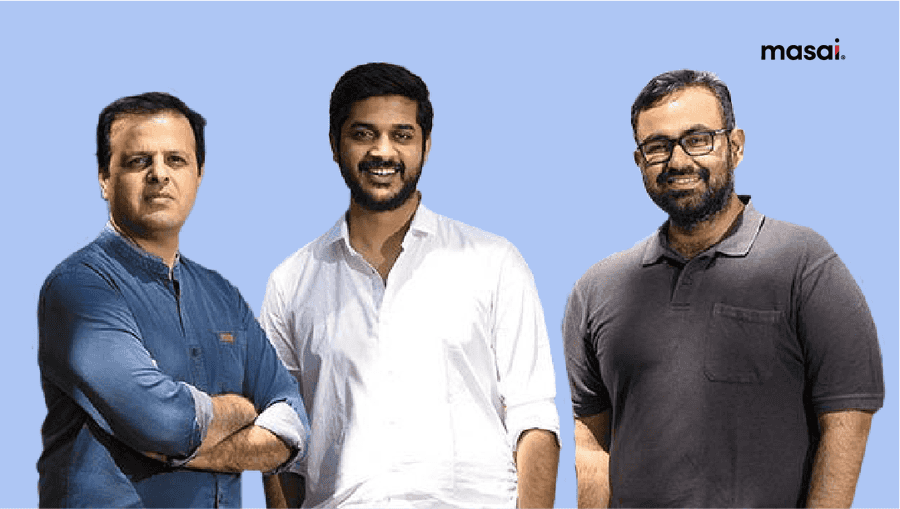Masai School: the Messiah for Tier 3 city learners?
February 08, 20242 minsMasai School is the first Omidyar portfolio company I decided to look at after news broke of Omidyar Network exiting India.
Masai is not the only outcome driven career school in India. Sure it is among the top 2 capitalised EdTech’s in its category but it stands out in a unique way for a few reasons.
A co-founder’s experience as a Teach for India fellow and a subsequent meeting with the Chieftain of the Maasai Mara tribe is where the intriguing back story starts. From their About page:
Our Co-Founder & CEO, Prateek Shukla was teaching with Teach For India during his pre-final year at IIT Kanpur and stumbled upon the education problem in India and how under-tapped India’s true potential is. During a vacation to Kenya and Tanzania a few years later, he met with the Chieftain of the Maasai Mara Tribe. He learnt about the robust skilling techniques the tribe follows to keep themselves always able and self-sustained.
Back in India, he realised that every technology company spends about 6 months in training their new recruits before they move on to contribute to the organisational goals. Finding an opportunity to help upskill Bharat, Prateek got Nrupul Dev and Yogesh Bhat together to start Masai School in June 2019. They set out to build a military-style coding institute, based on the 11-11-6 intensive training regime that runs for 6 days in a week from 11am to 11pm. The holistic program includes 1200 hours of hands-on coding, 100 hours of soft skills training, 100 hours of mathematics and more.
Outcome driven career school
While there are all kinds of impressive stats on their About page (94% placement rate is my personal favorite), the most interesting insights came from this podcast interview with Prateek Shukla (co-founder and CEO):
- 80% of their student base comes from Tier 3/4 towns! (and hence the title of this post)
- 2500 students have already been placed at 2000+ companies
- A very high percentage of their customers come via referrals (ergo “customer acquisition cost is very low”)
- The company’s aim to quadruple the placements (10,000/year within 2 years) is definitely a BHAG but if they achieve it - wow!
- The anecdote of a graduate (Saumita) whose family’s monthly income used to be Rs 5,000; Saumita landed a job north of Rs. 20 Lakhs and moved her family to Bangalore! This transformation story is arguably even more impressive than Ashish Raj’s story - lad from Munger, Bihar to cab driver in Bhopal to a software engineer - featured on their success stories page
Pay After Placement (PAP) = Income Sharing Agreement (ISA)
As shown below, Masai has a tiered fee structure for its PAP agreement
Using the lower-end of the CTC ranges, the monthly payments represent 24%, 20%, and 18% (of the monthly CTC) for categories A, B and C respectively.
Mostly Staying the Course
Unlike Newton School and the edtech heavyweight PhysicsWallah (PW) who have both launched bricks-and-mortar 4-year BTech programs either directly (or through partnerships), Masai seems content staying the course with its “digital only” model.
Why did I say ‘mostly’? Because Shukla (in that same interview with Omidyar’s Nautiyal) talks about their partnerships with government colleges (where placement rates are an abysmal 10%). There is talk of upskilling both the teachers and learners at these colleges which should improve placement rates. Will this be a significant new channel of growth & impact? Or a distraction from their primary channel? Time will tell. For now, I will root for them.
Masai Co-founders (from L): Yogesh bhat, Prateek Shukla, Nrupal Dev

